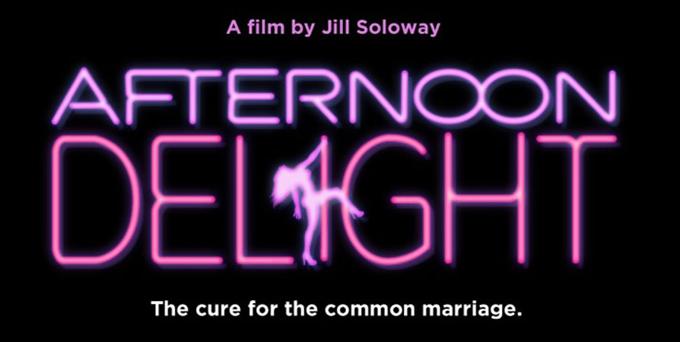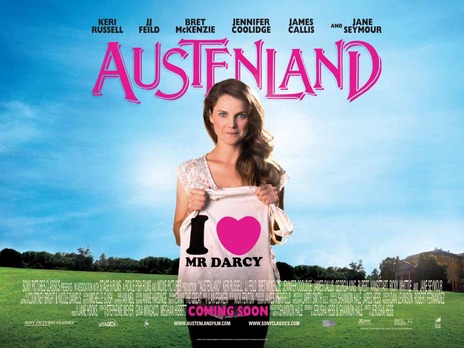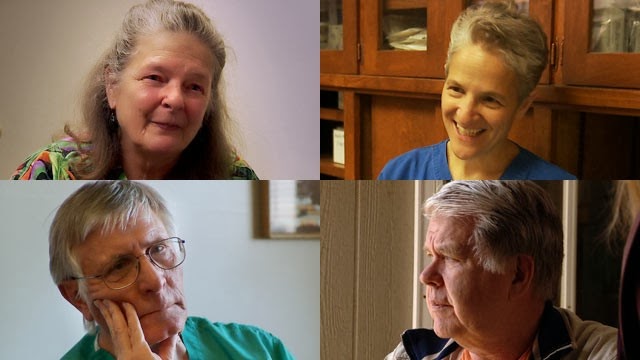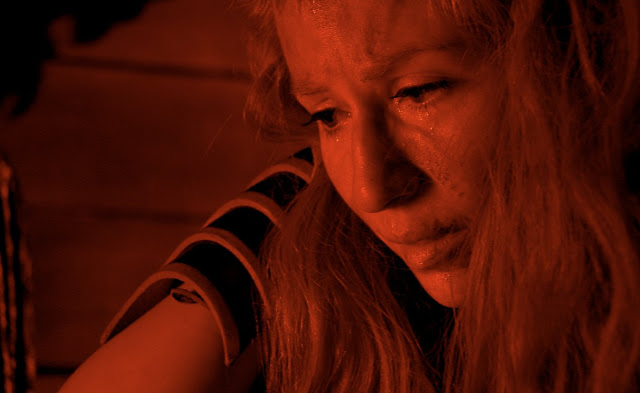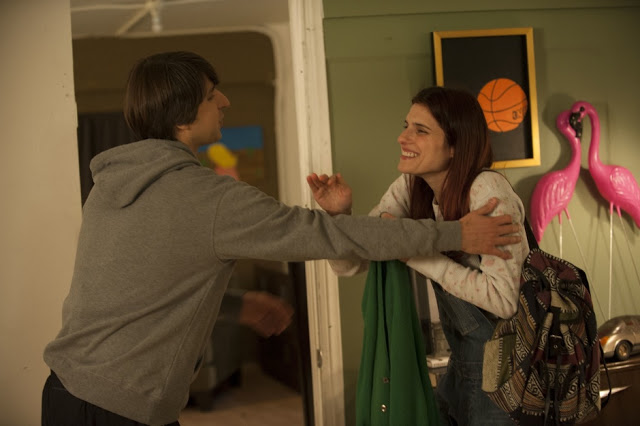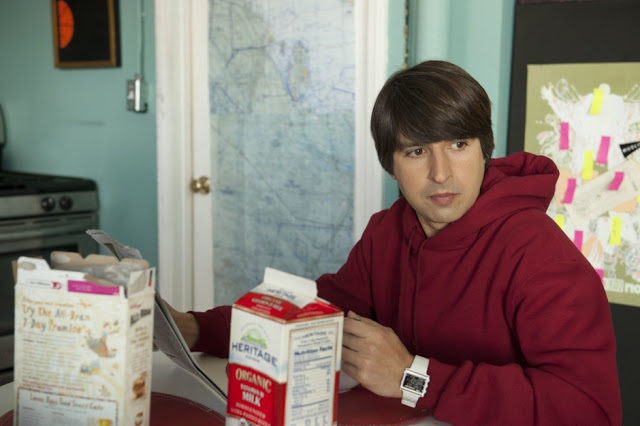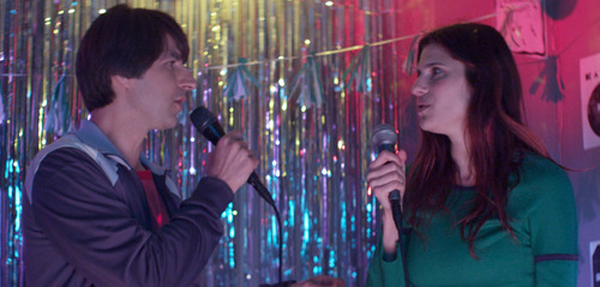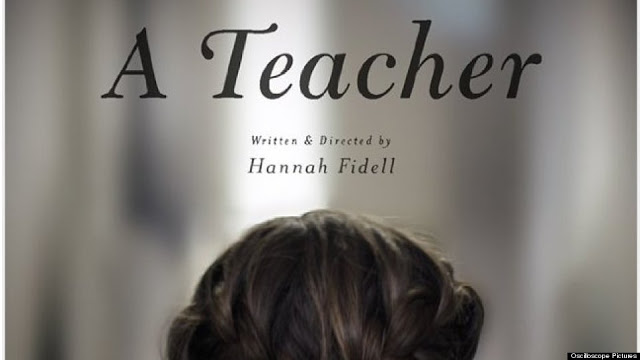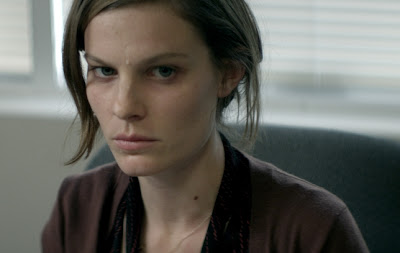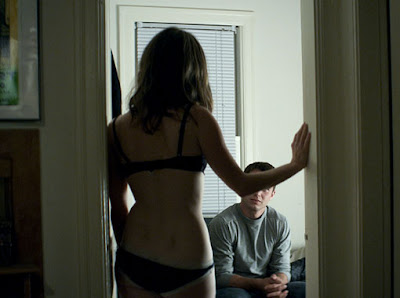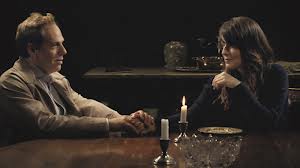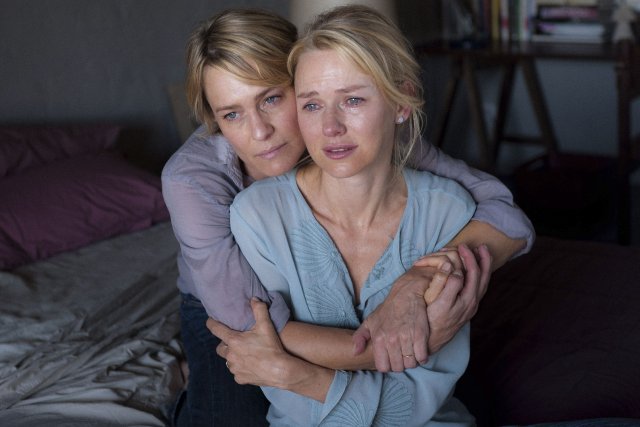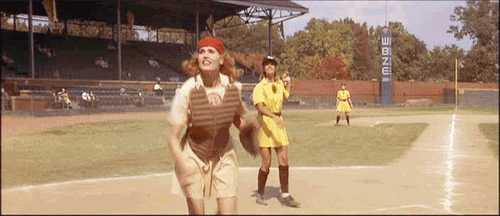
This is a guest post by Heather Brown.
The only other Nicole Holofcener film I had seen before Enough Said (2013) was Walking and Talking (1996), a delightful indie movie about Gen X-ers trying to navigate love and friendship in NYC. Though there are many fans of the movies she made in between these two—and many compelling reviews—I wasn’t sure I needed to hurry up and watch them. I figured that I, like many viewers, pretty well know that rich, white people have problems just like the rest of us. Granted, most of us generally slog through life without quandaries like having to worry about why the maid insists on putting the hairbrush in the silverware drawer. But now that I’ve seen Holofcener’s latest you can bet that I’ll be moving other films like Please Give (2010) and Lovely and Amazing (2001) up on my Netflix queue.
Enough Said is set against the backdrop of people in L.A. with economic and social privilege that goes unremarked upon, but Holofcener does not dwell on these factors and instead shines a light on the flaws and vulnerabilities of middle-aged single parents in a way that is sympathetic and tender. It doesn’t hurt that one of these characters, Albert, is played by the late James Gandolfini, whose slobby charm is made even more winsome by fact that this was one of his final film performances. Albert is about as sweet and low-key as Tony Soprano was fierce and explosive, and it’s easy to see how the earthy masseuse Eva (played by Julia Louis-Dreyfus) finds him endearing.

As the story goes, Albert and Eva are introduced at a party, and later he asks her out to dinner. Unbeknownst to them both, the party that brought them together also put Eva in conversation with Albert’s ex-wife, Marianne, played by Catherine Keener. Marianne is a poet, which Eva finds intriguing. And as it happens, Marianne is also in need of a good masseuse. You know what happens next. Would that Albert and Marianne’s separation was an amicable one, perhaps there would be nothing to discuss about her ex as she lay prone on the massage table as Eva works her magic. Not so, of course. Once Eva realizes that the man she finds herself growing more and more attracted to is the very man Marianne can’t cease to skewer during each massage, trouble starts brewing.
What follows is Eva eagerly drinking in Marianne’s ire about Albert, as she reads Eva a list of his faults. Unsurprisingly, many of these shortcomings involve his eating, hygiene, dress, and home décor tendencies. (As Marianne tells her, “My ex-husband and I had zero in common, and I was completely repulsed by him sexually.”) Eva can’t seem to trust her own feelings and judgment and gets deeper into a one-sided friendship with Marianne, whose narcissism is almost too obvious for Eva to notice.

All that said, the plot really turns on Eva’s relationship with her daughter Ellen (Tracey Fairaway), and her impending departure to college on the opposite coast. Eva is having a difficult time losing her daughter to this inevitable next step (and indeed, so is Albert, whose daughter Tess, played by Eve Hawson, is also on her way out of the nest). Because we follow Eva’s story the closest, we, too, are put through the emotional ringer of seeing Eva express her desire to pull Ellen tighter by proxy of Ellen’s friend Chloe (Tavi Gevinson), who feels closer to Eva than she does her own mother. Ellen resents her mother’s misplaced neediness, and their conflict is handled with nuance and grace. And it’s not as if Eva’s married friends Will and Sarah (played by Ben Falcone and Toni Colette) have it figured out; Sarah, for instance, is obsessed with rearranging the furniture, which Will finds perplexing. Their exchanges are especially amusing, as is much of the film overall.

What I found most compelling about this film is Eva’s obsession with Albert’s physicality, but not for the reasons you might expect. Yes, Albert is clearly overweight and could stand to show up to a second date with a button-down instead of a T-shirt, but it’s the way that Eva tallies up his faults that shows her to be the one who could stand to do some work on herself. Audiences are quite used to seeing relationships in romantic comedies wherein men and women’s attractiveness is asymmetrical (see: almost every Judd Apatow film). If you’re like me, you find this troubling and tired and yet another example of Hollywood’s gendered double standard. But Enough Said calls into question Eva’s superficiality and preoccupation with Albert’s physical flaws (from his caloric intake to his loud, labored nose breathing) rather than condone her attitude as a reasonable response. Holofcener offers a subtle yet powerful critique of women’s tendencies to promote amongst themselves an ethos of moral superiority as expressed in physical health and well-being. After all, the central irony of Eva is that while her livelihood is to provide a healthful touch, she will not allow herself to be the recipient of the same tenderness. Practicing massage requires acceptance and kindness toward the body—something that does not come easy to her when it comes to letting herself connect with Albert.

Without spoiling the ending, let’s just say Enough Said leaves us with a sweetly unresolved last scene. It’s rare that a romantic-comedy hints that in fact, yes, it is possible for people to come together without the expectation that one or both people need to change in order to win the other’s affection. Holofcener’s film makes a refreshing case for suspending judgment for the sake of trusting one’s gut feeling—and the importance of following your own way.
Heather Brown lives in Chicago, Ill., and works as a freelance instructional designer and online writing instructor. She lives for feminism, movies, live music, road trips, and cheese.





